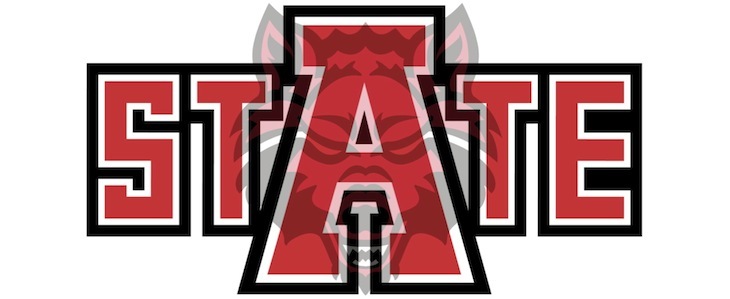Tax reform bill could have negative consequences for college athletics charitable giving
by December 20, 2017 6:22 pm 850 views

The Red Wolves Foundation, the athletics fundraising arm at Arkansas State University, is scrambling to collect as many donations as possible before significant changes to the U.S. tax code are enacted. One provision that allows fans to write-off 80% of money spent on “preferred seating” at athletics events will be removed after the passage of the tax reform bill on Wednesday.
Red Wolves Foundation Executive Director Adam Haukap told Talk Business & Politics he’s uncertain how this will impact charitable giving. The non-profit organization raised about $3.5 million in donations last year, and it’s on target to raise the same amount this year. He’s not sure how much of that amount comes directly from preferred seating, but he said it is “significant.”
A letter has been sent out to donors informing them of the change, and the Foundation has been pushing messages on social media.
“We’re trying to be proactive … we don’t know how this will impact us,” he said. “It’s a broad, wide ranging bill.”
The $3.5 million figure doesn’t include donations made for capital improvement projects such as the renovation of the north end zone at Centennial Bank Stadium or for scholarships. The new tax bill allows taxpayers to take a standard deduction of up to $24,000 as opposed to $12,000. The net impact will be that many taxpayers will likely take this deduction instead of itemized deductions, Haukap said. Itemized deductions include charitable donations.
The Foundation has grown significantly in recent years. In 2012, it raised about $700,000 per year, and had 1,200 donors. Those numbers ballooned to $3.5 million, and more than 2,000 donors. ASU Athletics Director Terry Mohajir has been aggressive in fundraising efforts, Haukap said.
The tax code change comes at a time when the Foundation has a major project in the works.
Home BancShares Chairman John Allison donated $5 million to the ASU athletics department Dec. 11 and a bank he helped found, Centennial Bank, committed an additional $5 million. Four of the five largest donations in the school’s history have come from Allison and Centennial Bank, ASU System President Chuck Welch said. Centennial’s donation ensures the stadium will continue to use its name until Dec. 31, 2037. Conway-based Home BancShares is the parent company of Centennial.
The money will be used to complete a remodel of the north end zone, a project Mohajir has been working for years to complete. Mohajir met with Allison several times to encourage him to make the donation. The money will be funneled through the Foundation. The donations will ensure that no public money is used to complete the $29 million renovation. An operations building, new locker rooms, position meeting rooms, weight training and rehabilitation areas, hydro-therapy room, and office spaces are part of the project. It will have multiple, unique water features.
Officials hope the stadium renovations will be completed before the 2018 season begins, and the rest of the project should be finished in early 2019. School officials believe renovations will allow the university to recruit the best athletes in this part of the country, and it should create a better home field advantage for ASU.
The stadium seats more than 30,000 fans. The renovation will reduce the end zone bleacher capacity from a couple of thousand to about 600, but the overall capacity shouldn’t drop below 30,000, he said. Stadium box seats, an all-you-can eat food and drink area, a water feature, and two alcoholic beverage bars are among the planned additions. Luxury boxes, known as the Red Wolves Den, and naming rights opportunities are already being offered. Those naming rights will be in the new expansion. Boxes in the Red Wolves Den section will seat four and private restrooms will be made available.
The economic impact to Jonesboro and other surrounding communities during the football season is dramatic. ASU home games generate $1.285 million in out-of-town tourist economic activity per game. Hotel sales tax revenues and sales tax collections also spike during the football season in the city.
